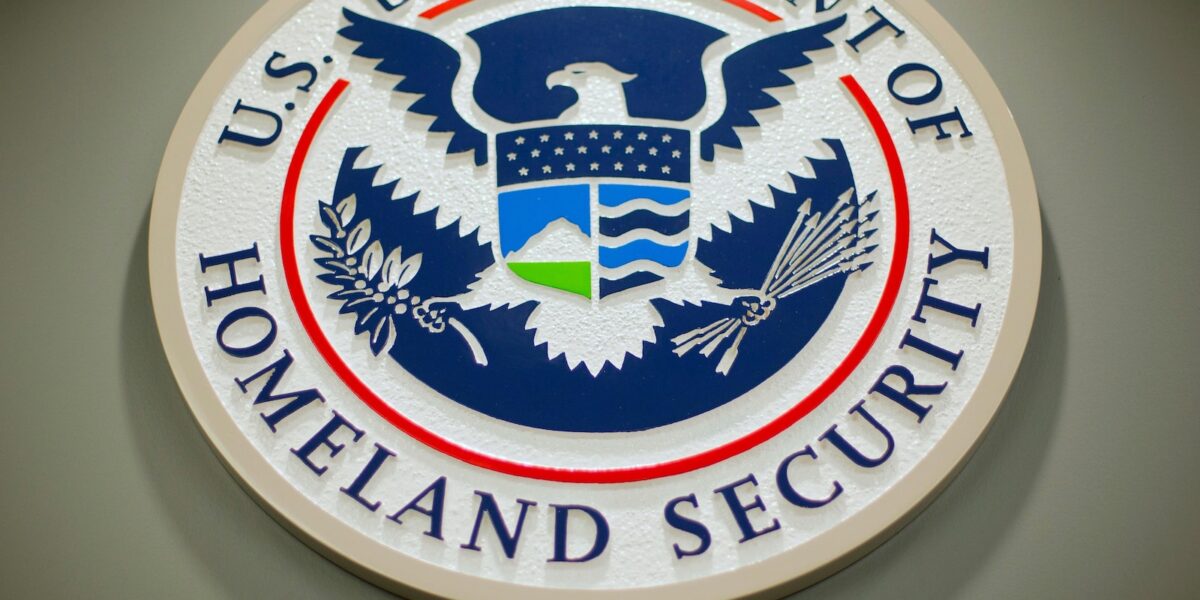MIAMI — The Biden administration sent about 50 Haitians back to their country on Thursday, authorities said, marking the first deportation flight in several months to the Caribbean nation struggling with surging gang violence.
The Homeland Security Department said in a statement that it “will continue to enforce U.S. laws and policy throughout the Florida Straits and and the Caribbean region, as well as at the southwest border. U.S. policy is to return noncitizens who do not establish a legal basis to remain in the United States.”
Authorities didn’t offer details of the flight beyond how many deported Haitians were aboard.
Thomas Cartwright of Witness at the Border, an advocacy group that tracks flight data, said a plane left Alexandria, Louisiana, a hub for deportation operations, and arrived in Cap-Haitien, Haiti, after a stop in Miami.
Marjorie Dorsaninvil, a U.S. citizen, said her Haitian fiancé, Gerson Joseph, called in tears from the Miami airport Thursday morning to say he was being deported on a flight to Cap-Haitien with other Haitians and some from other countries, including the Bahamas.
He promised to call when he arrived but hadn’t done so by early evening.
Joseph lived in the U.S more than 20 years and has a 7-year-old U.S. citizen daughter with another woman. He had a deportation order dating from 2005 after losing an asylum bid that his attorney, Philip Issa, said was a result of poor legal representation at the time. Though Joseph wasn’t deported previously, his lawyer was seeking to have that order overturned.
Joseph was convicted of theft and burglary, and ordered to pay restitution of $270, Issa said. He has been detained since last year.
Dorsaninvil said her fiancé has “nobody” in Haiti. “It is devastating for me. We were planning a wedding and now he is gone,” she said.
More than 33,000 people fled Haiti’s capital in a span of less than two weeks as gangs pillaged homes and attacked state institutions, according to a report last month from the U.N.’s International Organization for Migration. The majority of those displaced traveled to Haiti’s southern region, which is generally peaceful compared with Port-au-Prince, which has an estimated population of 3 million and is largely paralyzed by gang violence.
Haiti’s National Police is understaffed and overwhelmed by gangs with powerful arsenals. Many hospitals ceased operations amid a shortage of medical supplies.
The U.S. operated one deportation flight a month to Haiti from December 2022 through last January, according to Witness at the Border. It said deportation flights were frequent after a camp of 16,000 largely Haitian migrants assembled on the riverbanks of Del Rio, Texas, in September 2021 but became rare as fewer Haitians crossed the border illegally from Mexico.
Haitians were arrested crossing the border from Mexico 286 times during the first three months of the year, less than 0.1% of the more than 400,000 arrests among all nationalities. More than 150,000 have entered the U.S. legally since January 2023 under presidential powers to grant entry for humanitarian reasons, and many others came legally using an online appointment system at land crossings with Mexico called CBP One.
Homeland Security said Thursday that it was “monitoring the situation” in Haiti.” The U.S. Coast Guard repatriated 65 Haitians who were stopped at sea off the Bahamas coast last month.
Haitian Bridge Alliance, a migrant advocacy group, urged a halt in deportation flights to Haiti, saying Thursday that the U.S. was “knowingly condemning the most vulnerable, who came to us in their time of need, to imminent danger.”
With Republicans seizing on the issue in an election year, the Biden administration has emphasized enforcement, most notably through a failed attempt at legislation, after record-high border arrests in December. Arrests for illegal crossings dropped by half in January and have held pretty steady since then after Mexico stepped up enforcement south of the U.S. border. Biden says he is considering executive action to halt asylum at the border during times when illegal crossings reach certain thresholds.
___
Spagat reported from Berkeley, California.


